Hey, so, I wrote this awhile ago. I haven’t been to a restaurant in forever, just like you. Didn’t want you to get the wrong idea. Also, I added a part at the end because everything is so crazy now. Hope you’re well. xoxo
The Amazing Jumping Olive
Until last night, I’d never eaten an olive. As a kid I decided they looked gross, and have shuddered away from them ever since.
Last night, at a Moroccan restaurant, one of the courses was a vegetable platter, and one of the vegetables was green olives. Lying there, staring at me. I’ve been trying to be a more daring eater, so I picked one up. It was a lot like bungee jumping.
About a year ago, I went bungee jumping. I wanted to get rid of my intense fear of falling from great heights. That’s a perfectly reasonable, rational fear, as long as it only appears when there’s true danger. Stepping away from the ledge is almost always a smart thing to do. But being too scared to walk out on piers or across bridges just isn’t sensible.
So I needed to beat it out of myself. This has been my method since I was about eight, when I developed an obsessive fear of whales, and got rid of it (for a while anyway) by reading everything I could about them, and looking at pictures of them, and talking about them until my brain was cauterized and they were just boring.
I drove to the bungee place seven or eight times before I got the nerve to go in, and then I just grabbed some flyers and left. Just seeing people jump off the platform made me feel faint. Finally, I worked the humiliation method; I found a friend to go with me, and we called more friends and bragged about what we were about to do. That meant I had to at least try, or never look them in the face again.
At the bungee place, you ride an elevator to the jump platform. Stepping out of the elevator was the first very scary thing. The platform is just a metal grating, you can look through it to the ground. This is exactly what petrifies me most; looking out over edges doesn’t bother me so much, but looking straight past my feet and seeing air makes me want to grab onto things and wail.
I thought of the friends I’d called. It’s one thing to refuse to jump, which people do fairly often (no refunds) but it’s quite another to claim you’re going to jump and then refuse to get off the elevator.
Once on the platform it wasn’t so bad. I had cleverly decided to make the jump at night (it had taken all day to get up the nerve) and so it was fairly easy to avoid seeing the ground. Plus there was a lot of interesting stuff going on, with them explaining what to do with your body after you jump. I was a little irritated I had to do anything but jump, which should be plenty, but there were all sorts of instructions about putting your arms straight over your head until the second bounce and so on.
There were eight other people jumping, and as we waited we all talked about our intense panic. I got distracted cheering the other jumpers on, but then it was my turn and I was led to the front and strapped into the equipment, and I started to wonder if I was actually going to do it.
I remembered standing on a dock when I was eleven, frozen with fear while my family urged me to jump off into the water. I had seen them do it and knew it was perfectly safe, but that knowledge wouldn’t reach my body, which used its survival instincts to lock me to the wooden planks so solidly I’m surprised I’m not still there, shivering in my now-much-too-small swimsuit.
My silly refusal to jump that day is a very simple snapshot of the evolution process. Way way back, the people who were willing to jump willy-nilly off any cliff they saw didn’t live very long, and so didn’t have many babies with that jump gene. The people clever enough to pause and consider and then take the long way down by the path lived a lot longer and had lots more babies, and those babies also had the “take the long way down by the path” gene and so had more babies themselves.
Standing on the dock, and years later again on the bungee platform, every fiber of my being was screaming at me, in the voices of my ancestors, to take the long way down by the path.
They tied the bungee cords around my ankles. This did not make me feel secure. The cords were slack, so rather than feeling safely bound to the platform, I just felt like I was standing on a ledge with my ankles tied together. There was a metal pole next to me and I clung to it. I also clung to the guy who was trying to get me to jump. He kept saying I should look at the horizon and put my arms straight out in front of me, which was ridiculous. It hurt me that he would ask me to do this, but all the same I loved him very, very much. He was my pillar of strength, he was talking to me so gently, telling me I was safe, and, most importantly, he was staying still while I held onto him. I considered striking up a conversation about the parallels between this and more standard relationships (how many guys have we stayed with because we were scared of losing that secure feeling they gave us, even though we knew they didn’t have our best interests at heart?) in the hopes of distracting him from trying to get me to jump, but I could sense him getting bored and was a little worried he might push me.
I stood on that edge for a long time. In the video (part of the package, included in the price!), you see me almost in tears, explaining that I’m just not going to do it. That I couldn’t do it. I got my arms out in front of me and that was so scary I honestly thought it should be enough.
I knew, of course, that it was safe to jump. I’d done my homework. The chances of dying or being hurt were incredibly slim. Bigger than if I’d stayed on the ground, but not by much. And it felt important that I jump. I have relatives who are so afraid of heights they won’t get on a plane. They want to, they tell themselves it’s safe, and their bodies won’t listen, just like mine wouldn’t. Not being able to fly means not traveling, not seeing family, missing out on things. I couldn’t let it get that far with me. I had to take control of my mind, take control of my fear.
Saying we are in control of our brains sounds like a simple obvious thing, until we try to quit smoking or give up chocolate or jump off a ledge five hundred feet in the air. I really believed, deep down, that if I jumped I’d die. Trying to overcome this belief, take my brain firmly in hand and make it recognize the evidence, felt like trying to grow a third arm just by concentrating really hard. My brain wouldn’t shut up wailing, “I don’t want to die!” for even a second so it was hard to get it to listen to reason.
Finally, the guy told me it was time to just jump or go back, and I realized I wasn’t going to be able to do it. Standing on the edge of the platform looking at the whole open world, all that air and nothing, made me desperate to stay where I was. My arms were out in front of me, but that was as much as I could do. He was going to count from five to zero, and then it was time for me to jump. And I knew I wasn’t going to. He counted down, and I felt okay, because I had decided not to. At “three” and “two” I felt the platform under my feet and loved it, and knew I’d feel it there forever. At one I wished he wasn’t crowding me quite so much; I was going to be moving back in a second and he was in the way. At zero, while my brain wasn’t looking, I flung myself forward and off the platform into the night air.
I didn’t go into the right position, not at all. My limbs were flailing all over the place and if there had been water in the way I would have done a belly flop to end all. But there was just air and then the cords caught me and before the second bounce I’d remembered and moved my arms over my head.
My first conscious thought, after “Augggggggghhhhhhhhhhhh” was “this is the best thing I’ve ever done.” The second was “this must be what birds feel like.” Third, “well okay except birds don’t have cords making them bounce all over the place.” And fourth, “I could still fall if my ankles broke off. I should get down now.” And then they lowered me, and someone below caught me, and I was back on the ground.
It did make a difference. Roller coasters scare me a lot less now. I always rode them even though they scared me, but now there’s no fear at all, just the excitement. Walking over piers or gratings or glass bridges scares me just as much as ever, but now I do it anyway. My brain knows who’s boss, and knows that if it isn’t careful I’ll throw it off some more ledges.
Eating the olive (remember the olive?) last night wasn’t as scary as jumping off the bungee platform. Only I came just as close to not doing it. It’s a ridiculous thing, when we refuse to eat new foods. We know they’re not poison, so what’s the worst thing that could happen? They could taste really, really bad. Theoretically they could taste so bad we’d throw up. Probably we won’t, though. We remember when we were young and had little control over our gag reflexes, but as adults it’s much less likely we’ll throw up just because something is gross. So really the worst thing that will happen is a gross taste in our mouths, followed by an unpleasant memory quickly removed by eating something else. So why the fear? It’s all as evolutionarily based as not jumping off things. The people who ate all the interesting looking berries died sooner and had fewer babies, and so our genes quietly suggest we have the chicken.
I tried the coward’s way, nibbling off such a tiny amount that there was no hope I’d get the slightest idea what it tasted like. I told myself that was enough and I could go back to the carrots. I put the olive down on the plate and then picked it up and flung my body into the night air, popping the whole thing into my mouth.
These instincts we have are a good thing; they help us survive. But we have developed rational thought, and can examine these instincts, and decide when they are not logical. Sometimes we get it wrong, and get hurt or even die. But more often we get it right, and that gets us on the plane or into the new job or into the new world. Refusing to test and discard our instincts is ignoring the best thing about being human.
The olive tasted okay. Kind of interesting on the back of my tongue.
The End
Hey, so, this is me now in April 2020, wondering when I’ll ever be in a Moroccan Restaurant or on a bungee platform again. And thinking about what all that “fling your body into the night air” stuff means right now. This isn’t the time to force ourselves to go against our instincts and do frightening things. It’s a time for staying safe as possible, sitting at home if we can and being methodically careful if we can’t. Taking giant risks is the last thing we should do.
We are all scared right now. Scared of getting sick, or losing loved ones, or losing our means of providing for ourselves and our families. We want to run away to someplace that isn’t scary, or fight until this place isn’t scary anymore. Neither of those are options and our bodies are yelling in the voices of our ancestors to DO something, just like they yell at us not to jump off of bridges. So we’re still ignoring our impulses like we ignore our fear when it’s time to jump, and we’re still believing our brains over our bodies, only instead of a quick leap it’s a long slow struggle. We can do it. But we don’t have to pretend it’s not difficult.
There’s something else built into us, given us by our ancient ancestors. The people all those thousands upon thousands of years ago had a choice, to work together and take care of one another, or to care only about themselves and those closest to them. The ones who chose to be a part of a larger group, and to help the whole group succeed, had more babies, and saw more babies grow to adulthood, than those who didn’t. That’s the successful choice — to be a part of society and to take care of one another. We have it coded in our DNA.
The fact that we take care of one another is the reason it’s safe to do things like bungee jump or eat unfamiliar food. People had tested the bungee knots, people had washed that olive. When I stopped bouncing, people caught me and brought me to the ground. If it had turned out I was deathly allergic to olives, people would have rushed me to the hospital where other people would have done their absolute best to save me.
So that’s what we can all do, whether it means giving medical aid, or keeping things running, or just staying home so as to not spread our germs around. We’re taking care of ourselves and our families, and we’re also taking care of the plumber who fixed our sink two years ago, taking care of the nice cashier at the store down the street, and taking care of that jerk at the library who never remembers to whisper. It’s all we can do and the most important thing we must do.
Take care.
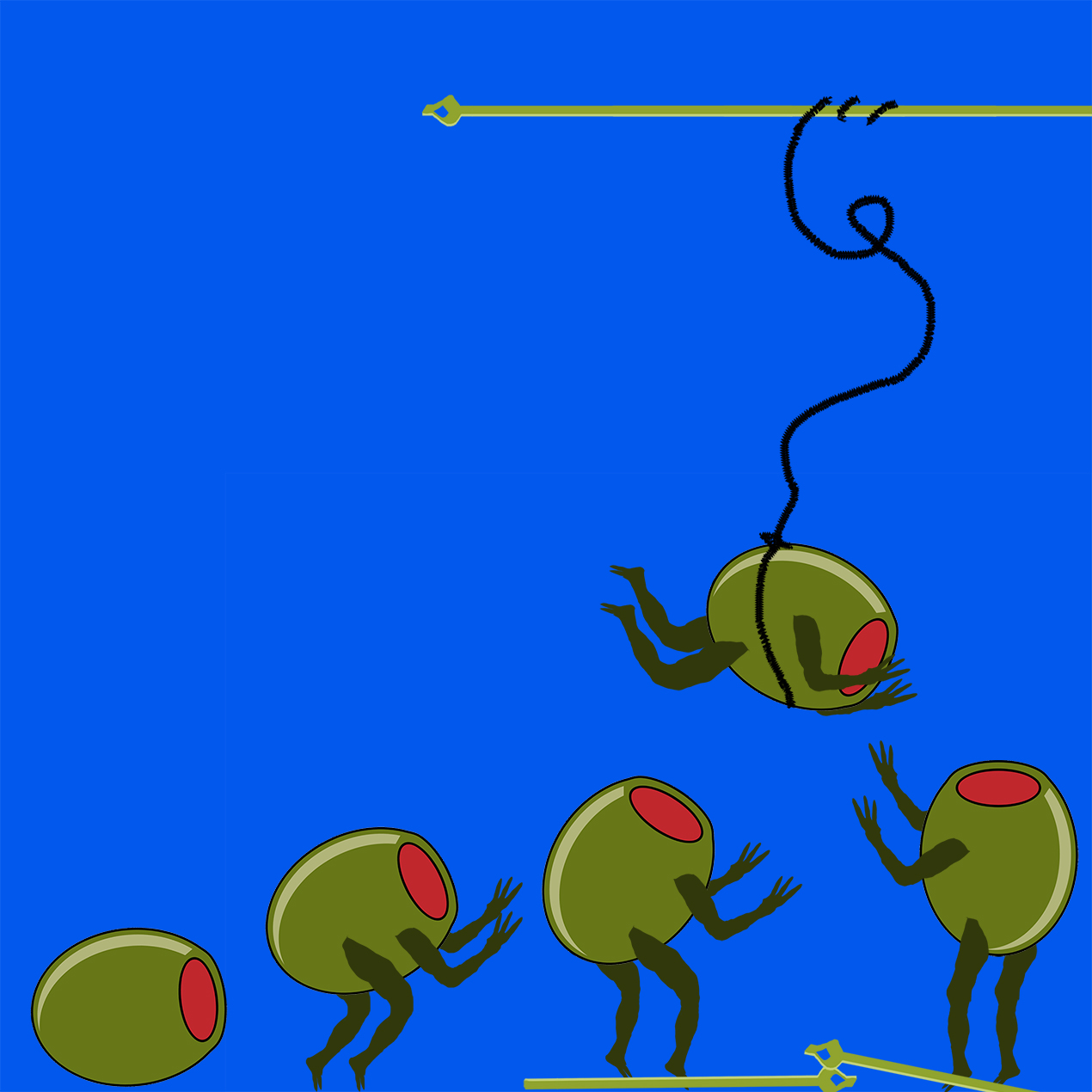

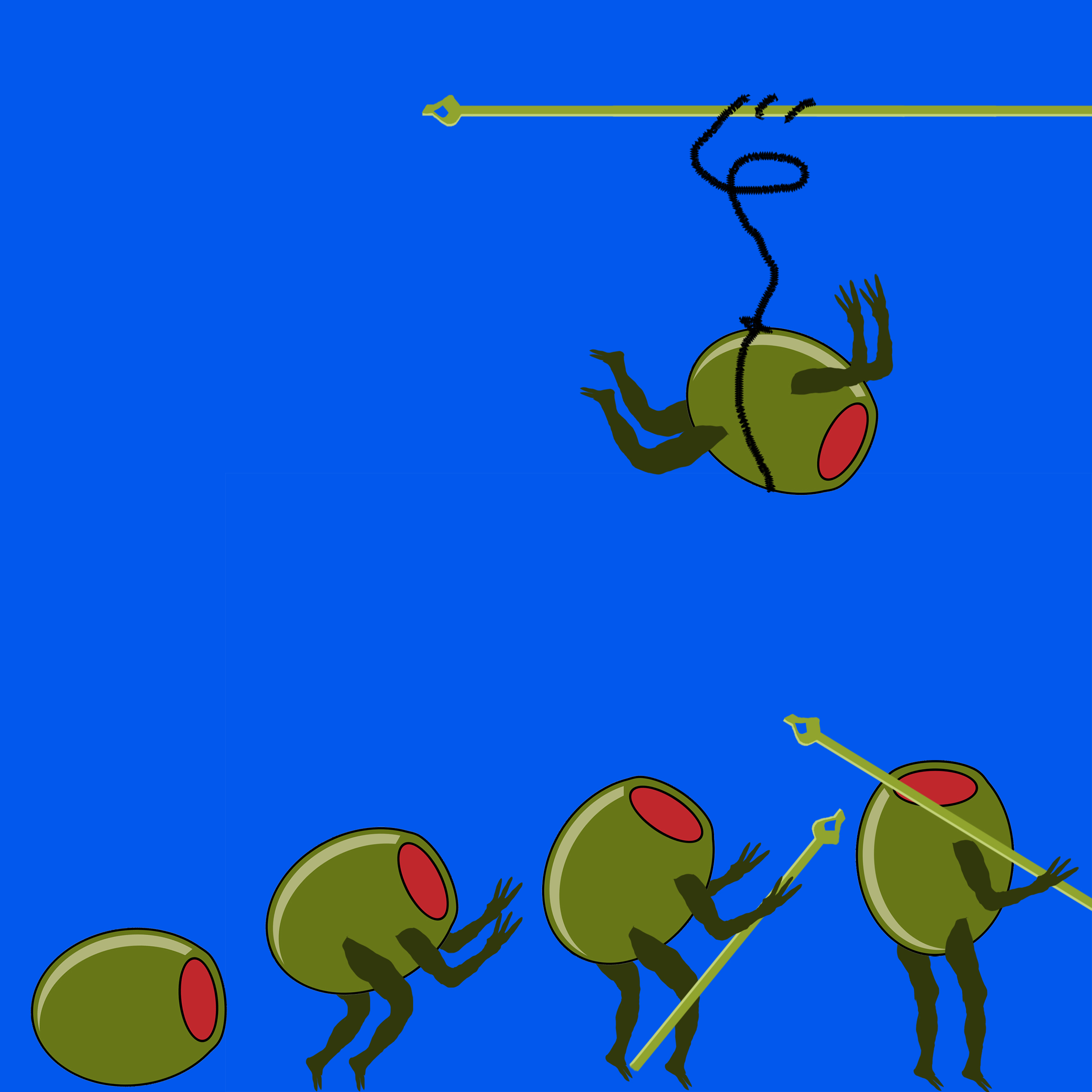
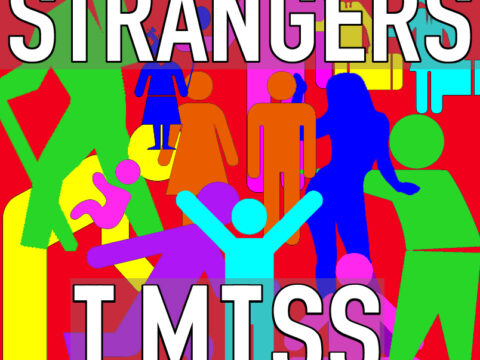
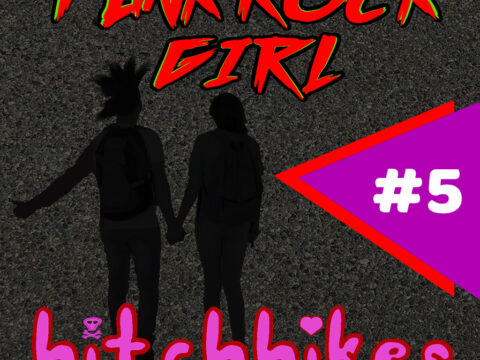
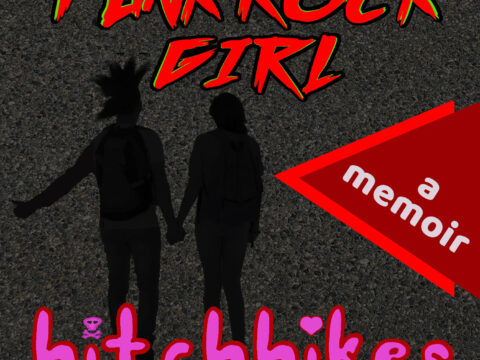





Thank you for this.